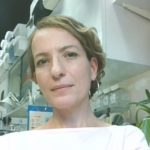Lien vers Pubmed [PMID] – 21118104
Lien DOI – 10.1042/BST0381442
Biochem. Soc. Trans. 2010 Dec; 38(6): 1442-7
Biochemical disorders in lysosomal storage diseases consist of the interruption of metabolic pathways involved in the recycling of the degradation products of one or several types of macromolecules. The progressive accumulation of these primary storage products is the direct consequence of the genetic defect and represents the initial pathogenic event. Downstream consequences for the affected cells include the accumulation of secondary storage products and the formation of histological storage lesions, which appear as intracellular vacuoles that represent the pathological hallmark of lysosomal storage diseases. Relationships between storage products and storage lesions are not simple and are still largely not understood. Primary storage products induce malfunction of the organelles where they accumulate, these being primarily, but not only, lysosomes. Consequences for cell metabolism and intracellular trafficking combine the effects of primary storage product toxicity and the compensatory mechanisms activated to protect the cell. Induced disorders extend far beyond the primarily interrupted metabolic pathway.

